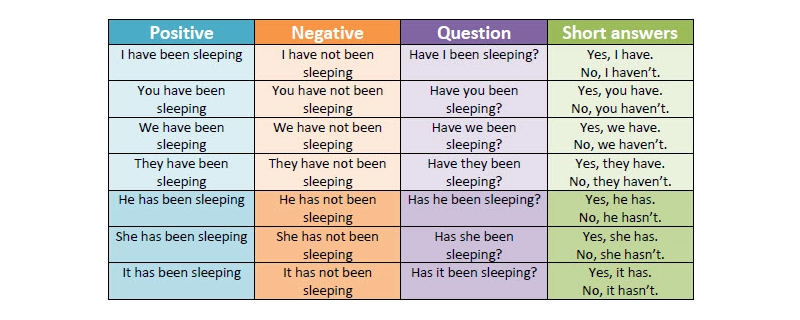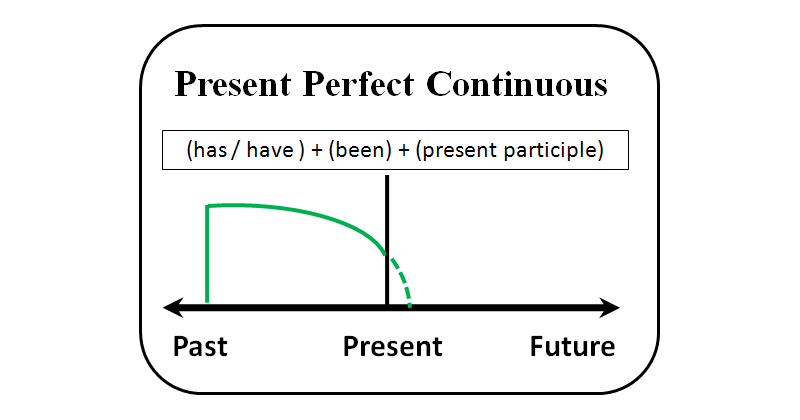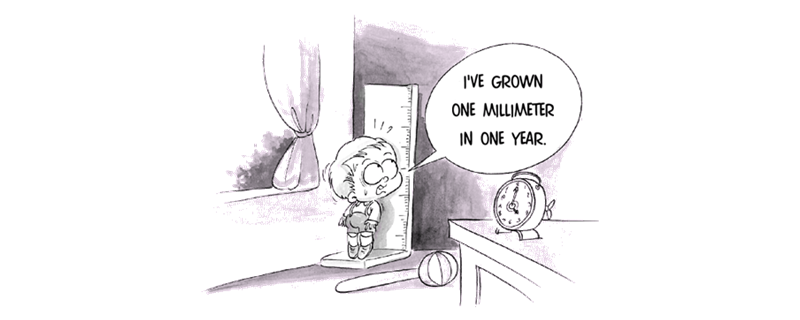Ostatnim razem omawialiśmy Present Perfect Simple, ale każdy czas prosty, jak wiemy, ma swój odpowiednik w postaci czasu ciągłego.
Tak więc dziś w menu Present Perfect Continuous with a straw.
Przede wszystkim słowo „Continous” odnosi się do czasu trwania akcji, a „Present Perfect” wskazuje na rezultat i niedokonaną czynność.
If we put two and two together, okaże się, że Present Perfect Continuous to czas używany do opisania długiej niedokonanej akcji mającej widoczny w teraźniejszości rezultat.
- I’ve been reading an interesting book this week. (and I’m still reading)
- He has been standing there for two hours! (and he’s still standing)
Jak zbudować czas Present Perfect Continuous

Jak każdy inny czas gramatyczny, Present Perfect Continous także posiada swoje charakterystyczne formy skrócone:
- I have been V-ing = I’ve been V-ing
- You have been V-ing = You’ve been V-ing (they’ve, we’ve)
- He/ she/ it/ John has been V-ing = He’s/ she’s/ it’s/ John’s been V-ing
- Has not been V-ing = hasn’t been V-ing
- Have not been V-ing = haven’t been V-ing
Kiedy więc używamy tego czasu?
1. Duration from the past until now
Kiedy akcja rozpoczęła się w przeszłości I trwa do dziś. We focus on the duration (czasie trwania) of the action.
- She has been talking for more than an hour, my ears hurt!
- I’ve been trying to call you all day!
- He started waiting a long time ago and he’s still waiting. Maybe he will continue waiting, but we don’t know this.

CONTRAST!
When we focus on the result, not the duration, of the action, we use Present Perfect Simple, not Continuous.

W tym przykładzie chcemy podkreślić wynik – the baby HAS GROWN one millimeter, that’s the result.
2. Recent action with a result NOW
If we don’t say the duration, (for three weeks, since January etc.) we mean “recently”. Here we emphasize that the action happened in the past and it has a result NOW.
- Why is the pavement wet? Because it’s been raining. – Long action (raining) which is already over. But the result can be seen now – the puddles.
- Have you been feeling well? – Oznacza to, że osoba wygląda na chorą i chcemy zapytać, czy ostatnio nie czuł się źle. We mean recently. We have a result now – the bad appearance.





